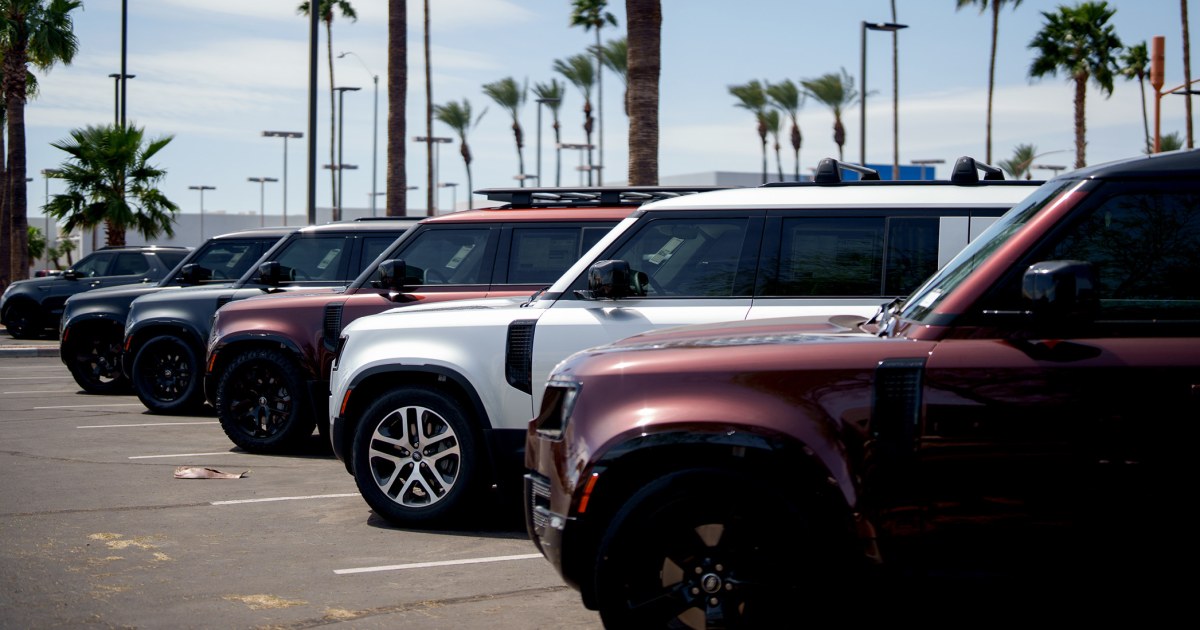
The Shifting Sands of Global Trade: Jaguar Land Rover’s US Shipping Pause
The automotive industry, a global behemoth built on intricate supply chains and delicate international relations, is once again feeling the tremors of protectionist trade policies. Jaguar Land Rover (JLR), a prestigious British automaker, has announced a temporary halt to US shipments of its British-made vehicles. This strategic pause, lasting a month, signals a significant challenge to the company’s operations and highlights the unpredictable nature of the current international trade landscape.
The decision to temporarily suspend US shipments stems directly from the imposition of a 25% tariff on imported vehicles. This hefty levy, imposed by the United States government, significantly increases the cost of JLR vehicles in the American market. The increased price point makes these luxury cars less competitive against domestically produced vehicles or those originating from countries with more favorable trade agreements. In essence, the tariff acts as a substantial barrier to entry, threatening JLR’s market share and profitability in a key market.
JLR’s response is a carefully considered maneuver designed to assess the situation and strategize for the future. A month-long pause allows the company to thoroughly evaluate the long-term implications of the tariff and to develop mitigation strategies. This isn’t simply a matter of absorbing the increased costs; the company must consider how best to remain competitive without jeopardizing its brand image or profitability. Options under consideration likely include various scenarios.
One potential strategy is to explore price adjustments. Passing the entire cost of the tariff onto consumers might be unsustainable, potentially driving away customers in a highly competitive market. A more measured approach would involve a partial price increase, absorbing some of the tariff’s impact to maintain competitiveness. However, this reduces profitability and demands careful consideration of the profit margin.
Another key area for JLR to consider is its supply chain. Could certain components be sourced from within the US to reduce dependence on imports and thus minimize the impact of tariffs? This requires significant investment in new supplier relationships and potentially factory modifications. Such a move could be beneficial in the long run, creating greater resilience to future tariff changes. It also potentially benefits the US economy, a potential element in future trade negotiations.
Furthermore, the company will undoubtedly be engaging in high-level negotiations and lobbying efforts. This might involve direct communication with US policymakers to advocate for tariff reductions or exemptions. JLR could also be seeking alternative routes to market to bypass the tariff or negotiate more favorable trade terms. The company’s strategic pause provides a valuable window to navigate these complex diplomatic and political aspects of international trade.
This temporary halt to US shipments serves as a stark reminder of the interconnectedness of the global economy and the vulnerability of businesses to sudden shifts in trade policy. JLR’s strategic pause is not merely a temporary setback but a crucial moment of adaptation and strategic reassessment. The actions taken in response to this challenge will likely shape the company’s future trajectory in the US market and serve as a case study for other businesses navigating the turbulent waters of global trade. The outcome of this period of strategic pause will be keenly watched, not only within the automotive industry but also by global businesses facing similar challenges in an increasingly protectionist world.



Leave a Reply